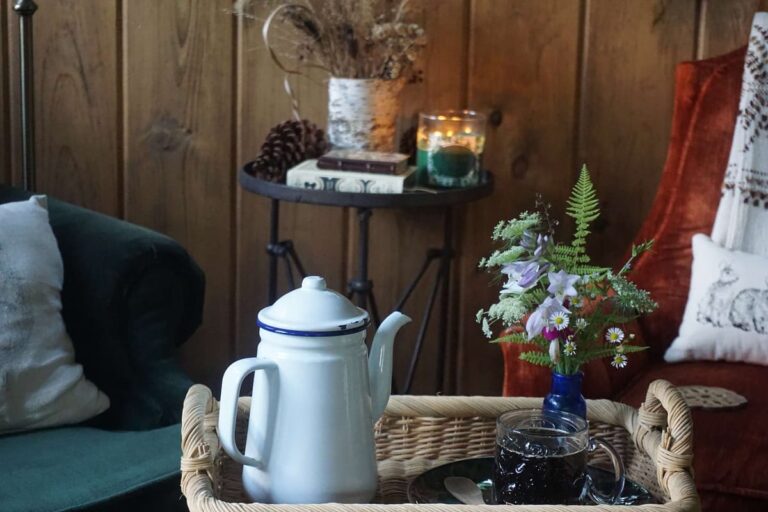Foraging is a wonderful way to connect with your local ecosystem, and it plays an important role in my seasonal life. It is an activity that not only nourishes, but also deepens my connection to the land and its cycles.
In spring the earth awakens and offers an abundance of soft greenery. Wild edibles such as ramps, fiddlehead ferns and wild garlic emerge, offering fresh flavors after the long winter. Foraging for these vegetables isn’t just about finding food; it’s about reconnecting with the land after the rest season. It is a time to observe the subtle changes in the landscape and appreciate the renewal of life.
Summer brings a colorful array of berries and fruits. Wild strawberries, blueberries and raspberries are found in abundance in many regions. Foraging for these berries is a wonderful activity that reminds me of nature’s generosity. It is also a time to consider the habitats in which these plants grow and to forage in ways that keep them thriving.
As we move into fall, the focus shifts to nuts and seeds. Acorns, walnuts, and hickory nuts become available, providing a rich source of nutrition and a connection to the ancestral practices of gathering and preparing these foods. Gathering and preparing nuts often requires more effort, but it is a rewarding process that provides a deep sense of connection to the land and its resources.
Foraging, in all seasons, deepens my knowledge of the land and its plants. It is an educational experience where I learn about the different species, their habitats and their uses. This knowledge is invaluable as it not only improves my foraging practices, but also informs my work as a bioregional herbalist.
Additionally, foraging teaches important lessons about sustainability and conservation. It’s a practice that encourages me to consider the impact I have on the ecosystem and only take what I need. This responsible approach ensures that the plants I forage from will continue to thrive and be available for future generations.
Including poultry foods in my diet is a way to celebrate the seasons and enjoy the diverse flavors and nutrients that each season offers. It is a practice that brings me closer to nature, increases my understanding of the environment and enriches my seasonal life. Foraging is not just about gathering food; it’s about experiencing the country in an intimate and sustainable way.
Read more about ethical foraging and wildcrafting here: 9 Basics of Ethical Wildcrafting for Beginners

